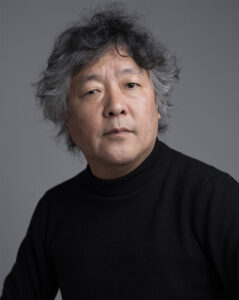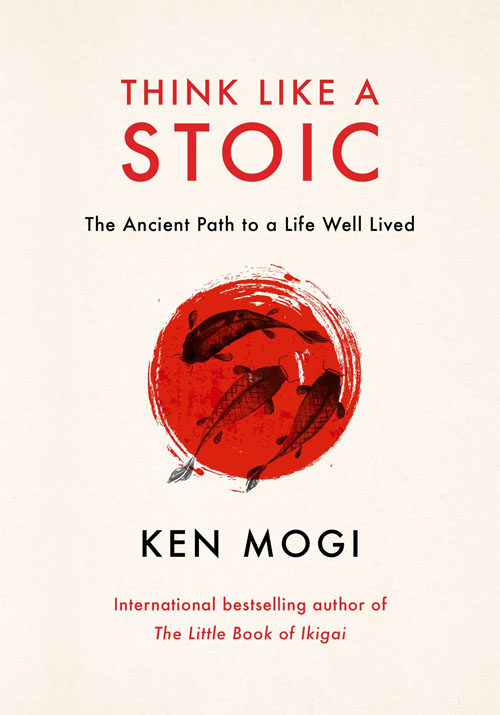It used to be that this was a world of scarcity and our ancestors had to fight for their survival. Now we are living in a world of abundance, at least for the more fortunate among us. This applies not only to material wealth, but also, and particularly, to informational abundance. At the same time, some of us may be feeling eerily empty, even on the verge of burnout.

Ken Mogi is a neuroscientist, writer and broadcaster based in Tokyo
I believe that in the human soul there is something that deeply resonates with the Stoic way of living. It could well provide the new foundations for spirituality in human society. It would be a misnomer, however, to call Stoicism a new religion of the twenty-first century. It would not be appropriate to make this venerable philosophy into a competitor of religion. It is rather that Stoicism could provide a foundation for a form of spirituality that is free from the constraints of traditional value systems, and yet aligned with modern science and our place in the universe.
Perhaps Stoicism is adaptable across cultures and ages because it is not perceived to have a charismatic figure from whom the whole principle stems. In fact, Stoicism started from a negation of a cult of personality. Although certain individuals played a pivotal role in defining Stoicism, it never became a movement under a particular person’s name. Stoicism is rather a collective and open-ended discipline, ready to be worked on and improved by everybody.
One of the key tenets of Stoicism is to accept oneself. This does not mean resignation, submission, fatalism or giving up hope of improving one’s life. Indeed, to acknowledge and then go along with one’s own peculiarities is an active process, in which one can be proactive and creative. One might even change for the better in that process. It is far from stagnating in the status quo.
In today’s cultural climate, in which it is politically correct to stress the importance of diversity, equity and inclusion, accepting one’s own unique conditions sounds almost like a cliche, hardly worthy of careful study. However, the difference in our individual situations is actually one of the most overlooked truths in life. We often fail to realize just how different people are in their configuration of mind and body. There are literally millions of possible conditions in millions of people, and each person is uniquely optimized and challenged to pursue various goals.
What makes us unique is not our talents (we might share these with others) but the configuration of talents and shortcomings within us. In order to succeed in this world, we need to see ourselves clearly. It is quite a stoic thing to do – to acknowledge one’s limitations and yet try one’s very best within them. Stoicism is about aligning yourself with your own unique conditions and selecting what you do accordingly.
Our time is full of person-worship, and we rarely question the foundations for our admiration. The predominance of a personality-centred value system is understandable – it is human nature to search for the glamorous and admirable in people and raise them up as inspirations. But we should beware of believing in any specific and fixed system of values, lest we become inflexible and lose our restlessness of reason, which is another way to express the fact that we are alive. And as long as we are alive, we are on a journey of transformation. Nothing is more terrible than losing the ability to transform oneself.
In 1999, American social psychologists Justin Kruger and David Dunning jointly published a paper titled ‘Unskilled and Unaware of It: How Difficulties in Recognizing One’s Own Incompetence Lead to Inflated Self-Assessments’, in which they described the finding that the less skilled are overconfident and tend to overestimate their performances, while the more skilled are humble and tend to underestimate theirs. Their finding, which came to be known as the Dunning-Kruger effect, has been used to account for the puzzlingly overconfident behaviours of people from politicians to internet trolls. The Stoic, needless to say, strives to be free from the Dunning-Kruger effect.
Socrates, the father of Stoicism, was always stressing that he knew nothing, which attitude came to be known as Socratic ignorance. Being intelligent is an open-ended endeavour, and the more you know, the less confident about the world you become. As your knowledge becomes deep, so you become more aware of your own ignorance.
No matter how important you are, how successful, wealthy, powerful, in comparison with the universe, you are nothing. The total insignificance of oneself is one of the most important elements of Stoicism. The universe is a great equalizer. It is not that everyone is equally important. It is that everyone is equally unimportant. We are all insignificant when facing the vast extension of space and time we call the universe.
So, what do we mean when we call someone ‘Stoic’? If a person can be humble, no matter their fortune, we might say they are stoic. Socrates certainly knew how to remain humble and reserved, treating people around him with respect. If a person knows how to restrain themselves amid material comfort and informational abundance, we can recognize a Stoic there. In the modern world, everyone can aspire to be a Stoic; we can have fruitful lives like a ripening rice ear, and yet make ourselves harmonious and sustainable by lowering our heads. That is the Stoic way, open to all of us.
This is an edited extract from Think Like a Stoic by Ken Mogi. Published by Quercus (£14.99).


